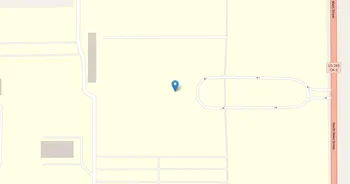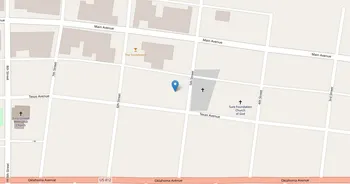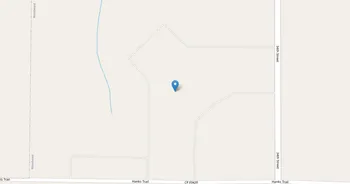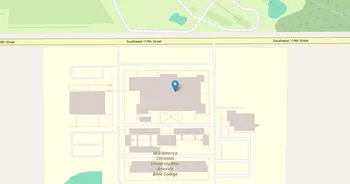University of Tulsa (TU) : Overview, Courses, Scholarships & Rankings
About University of Tulsa
Set in midtown Tulsa, this compact, leafy campus blends collegiate-gothic stone with light-filled labs. It's known for a collaborative vibe where professors learn your name and expect your best. The pace feels personal, not sleepy.
Academic strengths span engineering and computing, the sciences, business, law, and the arts, with a reputation for hands-on projects and undergraduate research. Students use well-equipped labs and studios, an active library, tutoring and writing centers, plus counseling and career advising.
Weeknights bring club meetings, service projects, and intramurals; game days pull everyone together. Tulsa's arts districts, riverfront park, and internships in energy, aerospace, healthcare, and finance are close by. Career prep leans on alumni and regional employers. Notable alumni include NFL Hall of Famer Steve Largent and author S. E. Hinton.
Key Institutional Details
Contact & Profile
Academic & Institutional
Academic Programs & Fields of Study
University of Tulsa (TU) offers 66 degree programs across 23 major academic fields, graduating approximately 1,076 students annually. The most popular fields by graduate volume are Business (10 programs, 187 graduates), Engineering (7 programs, 146 graduates), Computer & IT (4 programs, 126 graduates), Law (1 programs, 123 graduates) and Health (8 programs, 113 graduates). Explore program details, award levels, and graduate demographics below.
Business (10 programs, 187 graduates)
Business Administration, Marketing and Entrepreneurship
| Program Name | Graduates | Gender Distribution | Award Levels | CIP Code |
|---|---|---|---|---|
| Management Science | 56 |
|
Master's
|
52.1301 |
| Business Administration and Management | 26 |
|
Bachelor's
|
52.0201 |
| Finance, General | 23 |
|
Bachelor's
|
52.0801 |
| Management Sciences and Quantitative Methods | 19 |
|
Master's
|
52.1399 |
| Accounting | 17 |
|
Bachelor's
|
52.0301 |
| Organizational Behavior | 16 |
|
Bachelor's
|
52.1003 |
| Business Statistics | 14 |
|
Master's
|
52.1302 |
| Marketing Management | 11 |
|
Bachelor's
|
52.1401 |
| International Business and Trade | 4 |
|
Bachelor's
|
52.1101 |
| Business Administration | 1 |
|
Bachelor's
|
52.0101 |
Engineering (7 programs, 146 graduates)
Engineering Sciences and Applied Technology Solutions
| Program Name | Graduates | Gender Distribution | Award Levels | CIP Code |
|---|---|---|---|---|
| Mechanical Engineering | 54 |
|
Bachelor's
Master's
Doctorate (R)
|
14.1901 |
| Petroleum Engineering | 43 |
|
Bachelor's
Master's
Doctorate (R)
|
14.2501 |
| Chemical Engineering | 21 |
|
Bachelor's
Master's
Doctorate (R)
|
14.0701 |
| Electrical and Electronics Engineering | 17 |
|
Bachelor's
Master's
|
14.1001 |
| Computer Engineering | 9 |
|
Bachelor's
Master's
Doctorate (R)
|
14.0901 |
| Computer Engineering | 1 |
|
Bachelor's
|
14.0999 |
| Engineering Physics | 1 |
|
Bachelor's
|
14.1201 |
Computer & IT (4 programs, 126 graduates)
Computer Science, Information Technology and Cybersecurity
| Program Name | Graduates | Gender Distribution | Award Levels | CIP Code |
|---|---|---|---|---|
| Computer Science | 56 |
|
Bachelor's
Master's
Doctorate (R)
|
11.0701 |
| Information Systems Security and Auditing | 49 |
|
Bachelor's
Master's
|
11.1003 |
| Information Technology | 13 |
|
Bachelor's
|
11.0103 |
| Virtual Environments and Simulation | 8 |
|
Bachelor's
|
11.0804 |
Law (1 programs, 123 graduates)
Legal Studies, Jurisprudence and Professional Law Practice
| Program Name | Graduates | Gender Distribution | Award Levels | CIP Code |
|---|---|---|---|---|
| Law | 123 |
|
Doctorate (P)
|
22.0101 |
Health (8 programs, 113 graduates)
Healthcare Professions, Medical Sciences and Clinical Practice
| Program Name | Graduates | Gender Distribution | Award Levels | CIP Code |
|---|---|---|---|---|
| Registered Nursing | 33 |
|
Bachelor's
|
51.3801 |
| Nurse Anesthesia | 28 |
|
Doctorate (R)
|
51.3804 |
| Speech-Language Pathology | 18 |
|
Master's
|
51.0203 |
| Audiology and Speech-Language Pathology | 15 |
|
Bachelor's
|
51.0204 |
| Athletic Training | 7 |
|
Master's
|
51.0913 |
| Adult Health Nursing | 6 |
|
Doctorate (R)
|
51.3803 |
| Family Practice Nursing | 5 |
|
Doctorate (R)
|
51.3805 |
| Health Professions and Related Sciences | 1 |
|
Bachelor's
|
51.9999 |
Biological Sciences (2 programs, 72 graduates)
Life Sciences, Biotechnology and Biomedical Research
| Program Name | Graduates | Gender Distribution | Award Levels | CIP Code |
|---|---|---|---|---|
| Biology and Biological Sciences | 53 |
|
Bachelor's
Master's
Doctorate (R)
|
26.0101 |
| Biochemistry | 19 |
|
Bachelor's
|
26.0202 |
Interdisciplinary (2 programs, 56 graduates)
Cross-Disciplinary Studies and Integrated Research Programs
| Program Name | Graduates | Gender Distribution | Award Levels | CIP Code |
|---|---|---|---|---|
| Behavioral Sciences | 52 |
|
Bachelor's
|
30.1701 |
| Museum Studies | 4 |
|
Master's
|
30.1401 |
Kinesiology (2 programs, 42 graduates)
Exercise Science, Sports Medicine and Physical Recreation
| Program Name | Graduates | Gender Distribution | Award Levels | CIP Code |
|---|---|---|---|---|
| Exercise Science and Kinesiology | 39 |
|
Bachelor's
|
31.0505 |
| Sport and Fitness Management | 3 |
|
Master's
|
31.0504 |
Social Sciences (3 programs, 36 graduates)
Sociology, Anthropology and Political Science Studies
| Program Name | Graduates | Gender Distribution | Award Levels | CIP Code |
|---|---|---|---|---|
| Political Science and Government | 16 |
|
Bachelor's
|
45.1001 |
| Anthropology | 14 |
|
Bachelor's
Master's
Doctorate (R)
|
45.0201 |
| Economics | 6 |
|
Bachelor's
|
45.0601 |
Psychology (2 programs, 22 graduates)
Psychological Sciences, Mental Health and Behavioral Studies
| Program Name | Graduates | Gender Distribution | Award Levels | CIP Code |
|---|---|---|---|---|
| Clinical Psychology | 12 |
|
Master's
Doctorate (R)
|
42.2801 |
| Industrial-Organizational Psychology | 10 |
|
Master's
Doctorate (R)
|
42.2804 |
Admission Requirements & Test Scores
Comprehensive overview of admission criteria, standardized test score ranges, and application requirements for prospective students at University of Tulsa (TU).
Application Requirements
Data based on IPEDS for 2022-2023 academic year. Test score ranges represent the middle 50% of admitted students (25th-75th percentile). Requirements may vary by program.
Tuition, Fees & Estimated Costs
Overview of tuition rates, housing, and other annual education expenses for undergraduate and graduate students
Financial Aid & Student Support
Summary of scholarships, grants, student loans, and financial aid statistics for undergraduate students
Student Success Metrics
Graduation rates and post-graduation earnings to help assess student outcomes and long-term value of education.
Loan Burden & Repayment Outcomes
Breakdown of loan repayment rates and student debt levels by income and dependency status.
Frequently Asked Questions
Find answers to the most common questions about University of Tulsa (TU)
How much does it cost to attend University of Tulsa (TU)?
The annual tuition at University of Tulsa (TU) is $48,102 for in-state students. When including room and board, books, and other expenses, the total estimated cost is approximately $66,188 for in-state students. Additional costs include room and board $11,192 .
Data based on IPEDS program completions for 2022-2023 academic year. Tuition and cost estimates are approximate and may not include all fees, personal expenses, or transportation costs.
What academic programs and degree levels does University of Tulsa offer?
University of Tulsa (TU) offers 66 academic programs across 23 major fields of study, with available degree levels: Bachelor's, Postbac Cert., Master's, Doctorate (Research), Doctorate (Professional).
Most popular program areas include:
- Business Administration, Marketing and Entrepreneurship (10 programs)
- Engineering Sciences and Applied Technology Solutions (7 programs)
- Computer Science, Information Technology and Cybersecurity (4 programs)
- Legal Studies, Jurisprudence and Professional Law Practice (1 programs)
- Healthcare Professions, Medical Sciences and Clinical Practice (8 programs)
Data based on IPEDS program completions for 2023-2024 academic year. Numbers reflect programs where students graduated, not all offered programs.
What is the acceptance rate for University of Tulsa?
University of Tulsa (TU) has an 58% acceptance rate and a 15.4% yield rate, making it selective.
Admission statistics breakdown:
- Total applicants: 6,631
- Students admitted: 3,845
- Students enrolled: 594
Data based on IPEDS for 2022-2023 academic year. Admission statistics may vary by program and application cycle.
What financial aid and scholarships are available at University of Tulsa?
University of Tulsa (TU) provides financial aid to 22% of first-time, full-time students, with average grants of $39,719 and average loans of $7,827.
Average financial aid amounts by type:
- Pell grants: $5,562
- State/Local grants: $4,856
- Institutional grants: $36,801
- Federal loans: $5,412
The university supports 585 students with grants and 247 students with loans annually.
Data based on IPEDS for 2022-2023 academic year. Financial aid amounts and percentages may vary by program, enrollment status, and individual circumstances.
What is the average salary for University of Tulsa graduates?
University of Tulsa (TU) graduates earn a median salary of $54,779 after 6 years and $61,408 after 10 years.
The salary range 10 years after graduation spans from $36,467 (25th percentile) to $100,122 (75th percentile).
Data based on IPEDS for 2022-2023 academic year. Salary data reflects graduates who received federal financial aid (approximately 60% of all graduates). Actual earnings may vary significantly based on program, location, and individual circumstances.
Related Universities




Found something useful? Help others discover it too! Share with friends, on social media, or save for later - every share helps someone find the information they need.